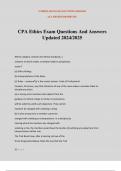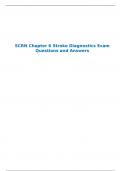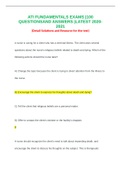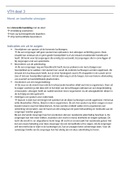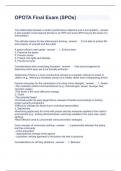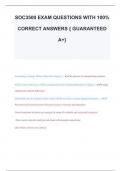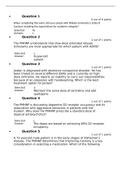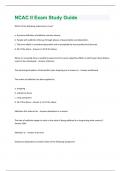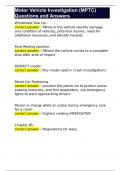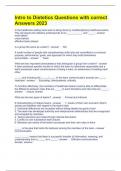Tentamen (uitwerkingen)
CPA Ethics Exam Questions And Answers Updated 2024/2025
- Vak
- Instelling
©THESTAR EXAM SOLUTIONS 2024/2025 ALL RIGHTS RESERVED. 1 | P a g e CPA Ethics Exam Questions And Answers Updated 2024/2025 Which category contains the ethical standards, a violation of which makes a member liable to disciplinary action? (a) Ethics Rulings. (b) Interpretations of the Rules...
[Meer zien]
